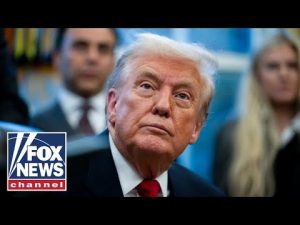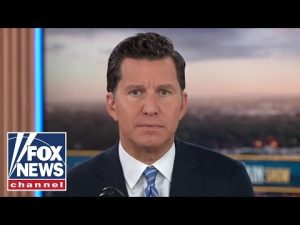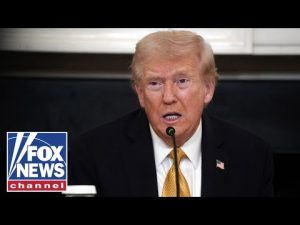In a saga that could be ripped straight out of a script for a political drama series, the BBC has found itself in hot water over what many perceive as underhanded journalism tactics. With a reputation for impartiality on the line, the British Broadcasting Corporation faces fierce criticism for allegedly editing footage of the January 6th events to unfairly depict former President Donald Trump as an instigator of violence. This isn’t just a headache for the BBC; it’s become a full-blown transatlantic squabble over defamation and fairness in media.
The heart of the matter lies in the BBC’s decision to hack and splice video footage in a manner that critics argue was intentionally misleading. The portrayal, repeated in a documentary broadcast numerous times, painted Trump in a light that many feel was unfairly negative, damaging his image not only in the UK but across the broader European continent. In what some might call a textbook example of biased editing, this situation highlights how powerful media influences can mold public perception with just a few selective cuts.
Now, there’s talk of defamation, particularly given the stark differences in how such cases are handled across the pond. In the UK, the burden of proof favors plaintiffs, meaning the broadcaster could be in for a rough ride if this matter escalates legally. It’s a different beast compared to the United States, where public figures face a high bar to claim defamation, needing to prove not just errors but actual malice or reckless disregard for the truth. And let’s be honest, if reckless disregard doesn’t describe the situation here, then what does?
What’s perhaps most shocking is the BBC’s insistence on denying any wrongdoing, even after top executives resigned and public apologies were made. It’s as if they concocted a masterclass in non-apology apologies. Admitting fault in editing but not conceding to accusations of bias might seem laughable if it weren’t so serious. An internal memo lends credence to claims of pervasive liberal bias, detailing how storylines are supposedly skewed and carefully cherry-picked. This could well be the smoking gun that calls into question the very integrity of their reporting.
In the court of public opinion, the BBC’s blunder has already rung the judgement bell loud and clear. As discussions about potential compensation gain momentum, the world watches closely to see if accountability will actually follow suits of contrition. For Trump, who’s no stranger to battle, both literal and figurative, this saga might be just another chance to fight against what he perceives as unfair treatment. The lesson here? Even well-established bastions of news must tread carefully—because once trust is lost, no amount of editing can easily glue it back together.







